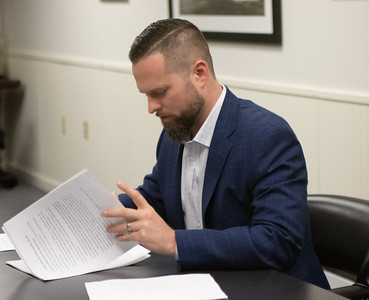Why Having A Will Isn’t Always Enough

A will is an important legal document, but it doesn’t cover everything. Many assume that once they have one, their estate is fully protected. That’s not always the case. Other legal steps may be necessary to make sure assets are handled properly and loved ones aren’t left dealing with unexpected legal issues. Even with a properly drafted will, complications can arise during the probate process, which is why consulting with a probate lawyer may help you to identify potential gaps in an estate plan.
Limits Of A Will In Asset Distribution
A will directs how assets should be distributed, but it doesn’t avoid probate. Any property solely in the deceased’s name will go through the court process, which can take months or even years. This can delay access to funds for beneficiaries, leaving them without necessary financial resources in the meantime.
Some assets, such as life insurance policies, retirement accounts, and jointly owned property, don’t follow a will’s instructions. These accounts pass based on beneficiary designations or ownership arrangements. If those aren’t up to date, assets could end up in unintended hands. For example, if a retirement account still lists a former spouse as the beneficiary, that person will receive the funds, even if the will says otherwise. Many people don’t realize that a will doesn’t override named beneficiaries on accounts, making it paramount to review and update all financial documents regularly.
Risks Of Probate And Legal Challenges
Even with a valid will, probate may still be required. This process involves verifying the will, paying outstanding debts, and distributing assets according to the document’s instructions. Unfortunately, probate can be expensive, time-consuming, and public, meaning anyone can access the details of the estate.
Legal challenges can also arise, particularly when family members disagree over inheritance. A contested will can delay asset distribution, increase court costs, and create stress for everyone involved. If the will isn’t properly drafted, signed, or witnessed, it may even be declared invalid, leaving the estate to be divided under state laws rather than the deceased’s wishes.
A well-structured estate plan can reduce these risks. Using added legal tools may help protect assets, prevent family disputes, and streamline the process for beneficiaries.
Additional Legal Tools For Better Protection
A comprehensive estate plan includes more than just a will. Trusts allow assets to transfer directly to beneficiaries without probate, providing a faster and smoother transition. A trust may also provide control over when and how assets are distributed, which is useful for minor children, family members with disabilities, or individuals who may not be financially responsible.
Power of attorney documents is another indispensable tool. These give someone the authority to handle financial and medical decisions if the original owner becomes incapacitated. Without these documents in place, family members may have to petition the court for guardianship, which can be a lengthy and costly process.
Healthcare directives outline medical preferences in case of serious illness or injury. This helps prevent disputes among family members about end-of-life care and allows individuals to receive treatment based on their wishes.
A will is a fundamental part of estate planning, but it’s not the only tool needed to protect assets and loved ones. Without additional legal protections, families may face unnecessary complications and legal battles. Taking the time to create a more complete estate plan can help avoid these issues and provide peace of mind. Sahyers Firm LLC may offer guidance on these legal matters, helping individuals understand their options and make informed decisions.


